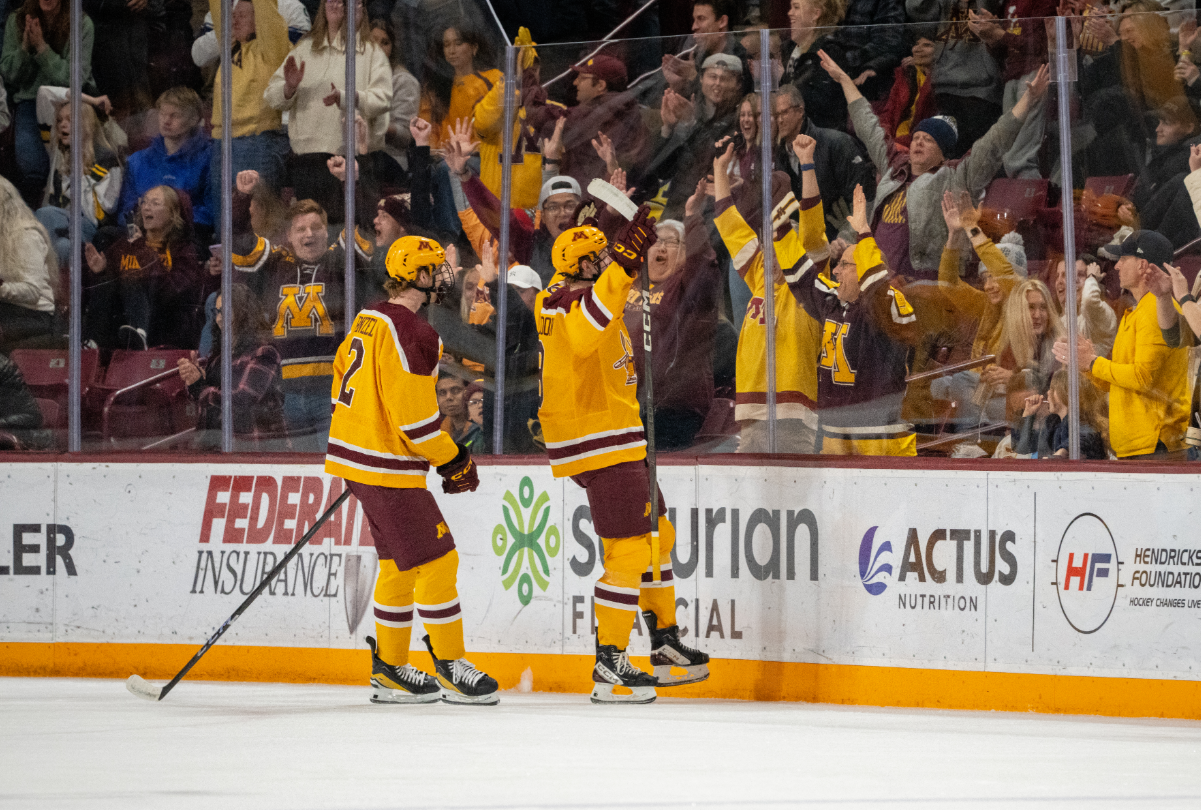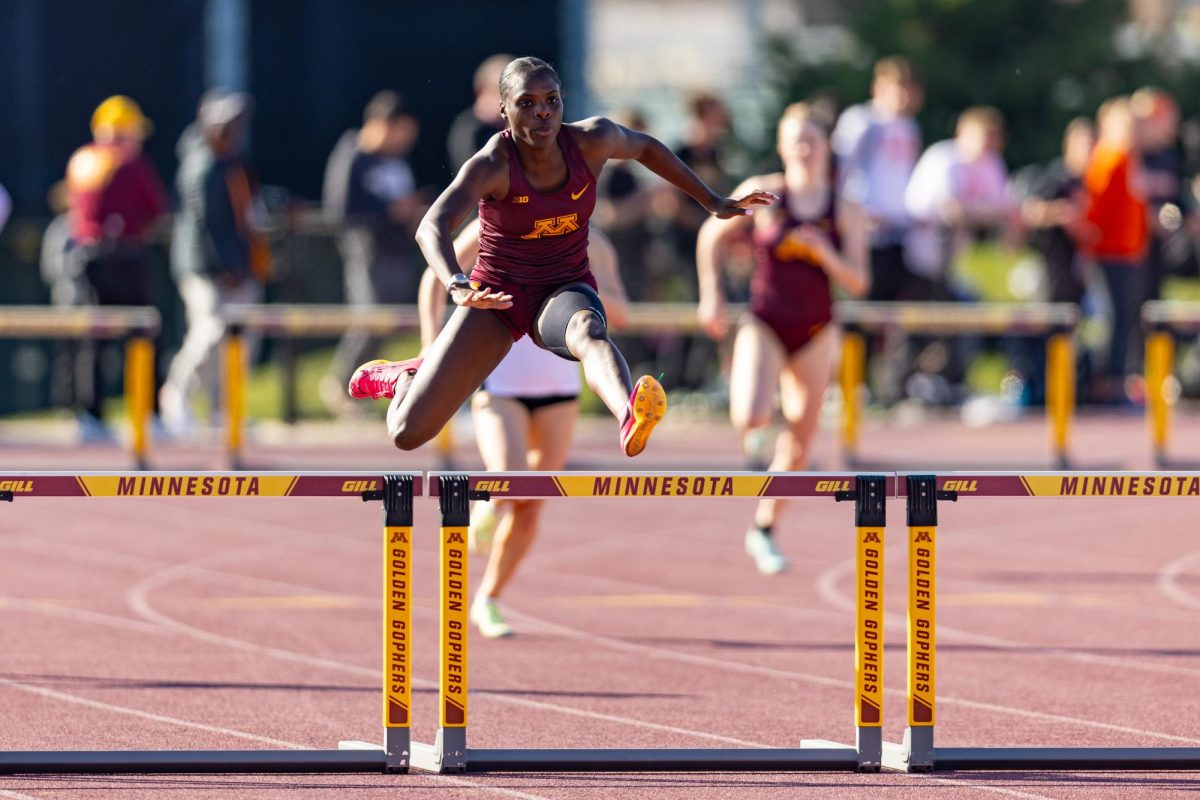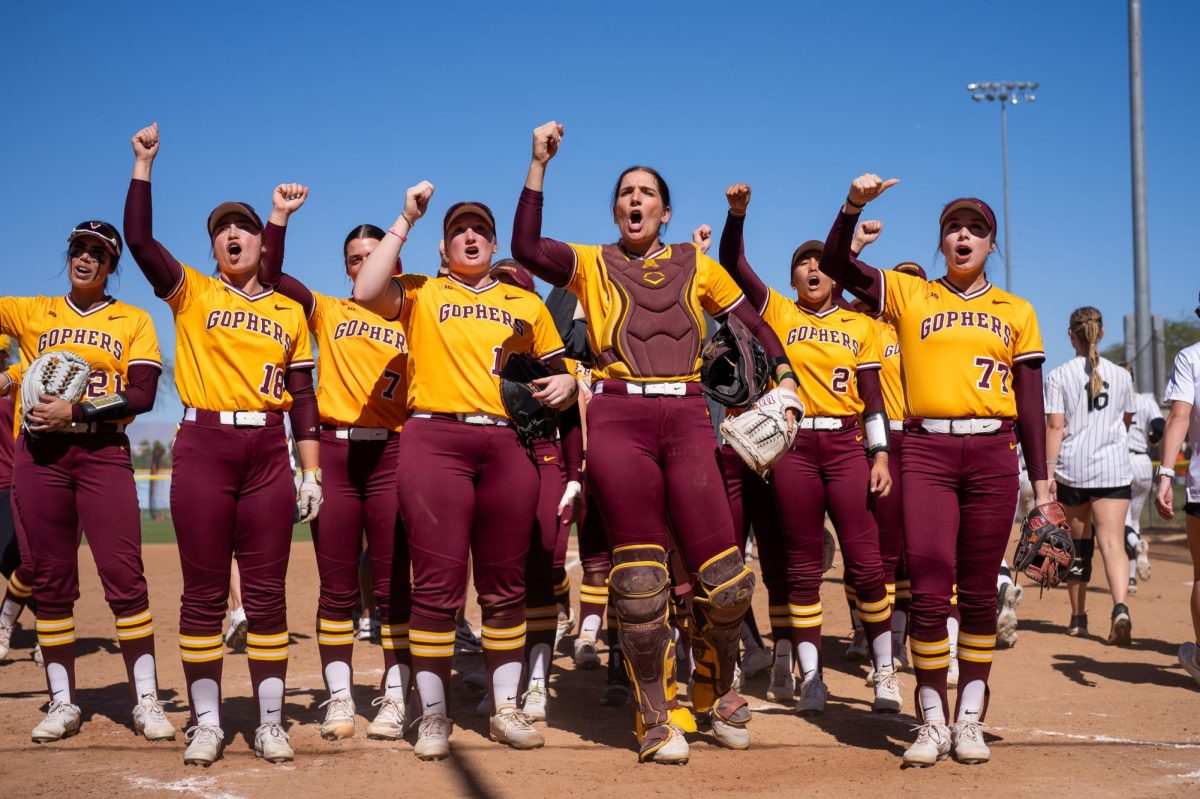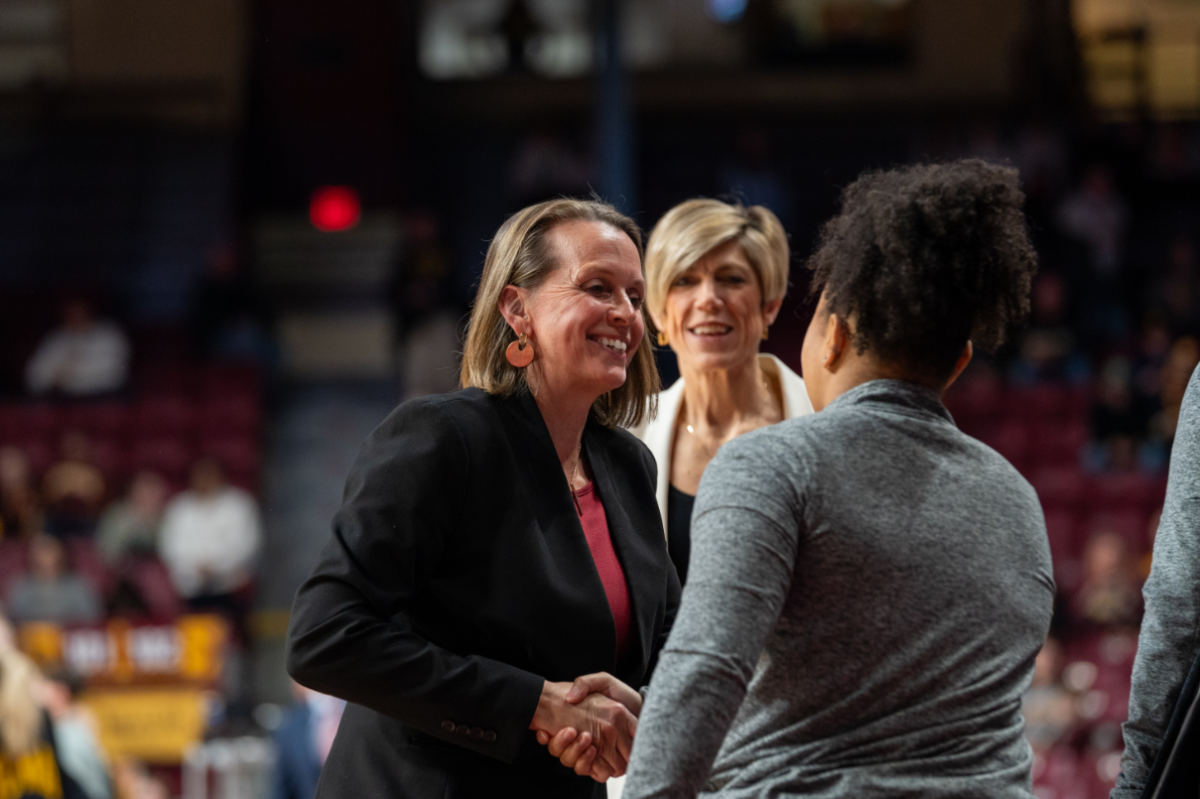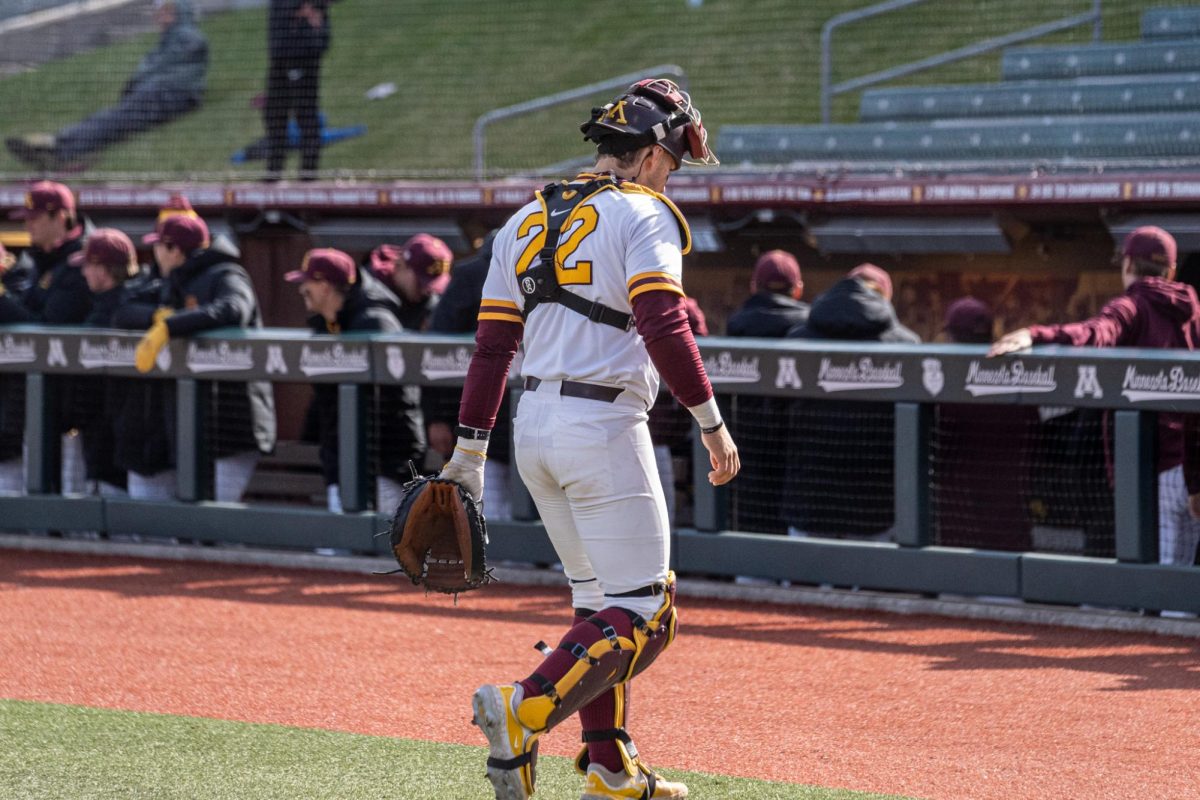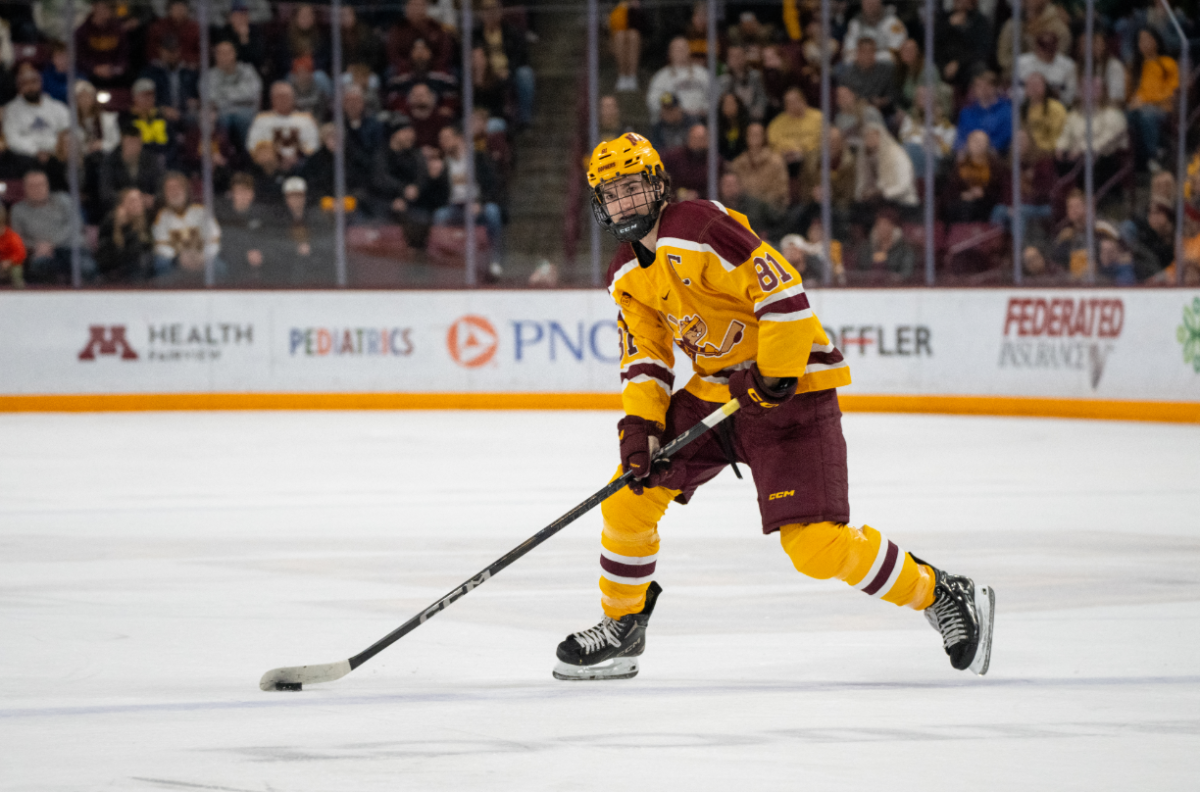Gophers women’s hockey head coach Brad Frost said at the beginning of each season, he sits his team down to discuss the implications of poor social media practices.
“We talk about how it’s called the World Wide Web for a reason, and when something gets out there, it’s impossible to get it back,” he said.
And Frost is not alone. Coaches across intercollegiate athletics are active on social media, whether it is for recruiting or monitoring their players under the NCAA’s rules.
Fieldhouse Media, a social media education firm, published a study last month on student-athletes’ social media use. The survey found that while more student-athletes are using Facebook, Twitter and other social media sites, they are doing so without the proper training.
That brought concern to Fieldhouse Media founder Kevin DeShazo.
“Student-athletes are such a public representation of the university. Not just running around on the field or court with their jersey on, but now with their social media, they’re a representative of their team, their coach, their department and university 24/7,” DeShazo said.
Nearly 1,000 student-athletes from across the NCAA participated in the study, with 80 percent of participants coming from Division I programs.
The study focused on usage of the four popular social media platforms: Facebook, Twitter, Instagram and Snapchat.
For example, 41 percent of the study’s participants said they have posted something inappropriate on their Snapchat account.
While the user controls who the snap is sent to and for how long, it’s problematic, DeShazo said.
“Most people are on social media to be aware of what’s happening in the world and to communicate with friends,” he said. “Nothing is wrong with that, but just because you’re doing that, I can see what you’re tweeting, the media can see, the lawyers can see.”
DeShazo and Fieldhouse Media emphasize the importance of understanding how to best use social media both for student-athletes and their athletics departments, as to prevent more issues from occurring.
The Gophers aim to do this through educational training on a team-by-team basis before its season begins.
Michelle Voss, social media coordinator for Minnesota’s athletics department, said the administration prefers to educate the student-athletes instead of laying down strict rules.
“We would like them to use social media and not inhibit them in any way,” Voss said. “But we want them to be completely educated on what the consequences are of doing something.”
While Voss provides the training for all teams, she said it’s really up to the coach to teach what she or he sees fit for the program.
For the women’s hockey team, all of the players are required to be friends with the team’s director of operations through their Facebook accounts. Frost said he also requires them to follow him on Twitter, and they are not allowed to tweet after midnight.
Frost said he has the same expectations for his potential recruits.
“The kids we recruit are people that would not hopefully make a mistake by posting something inappropriate,” Frost said. “And if they do, it gives me a platform to talk to them to just let them know that that’s not OK.”
Women’s tennis head coach Chuck Merzbacher takes a lighter approach to the issue.
He tells his players to simply not embarrass themselves because the effects can be detrimental.
But as for himself, Merzbacher handles social media a bit differently.
“I like to have a little fun with it and make fun of myself,” Merzbacher said. “I think if you use it right, it’s a pretty great way to stay connected to the world.”


